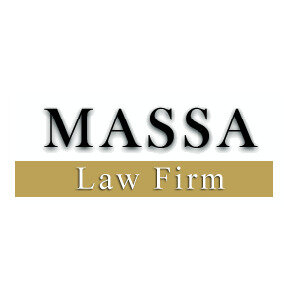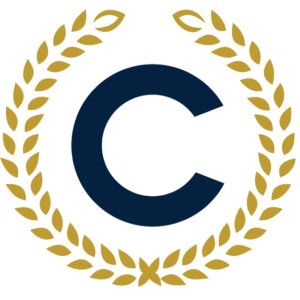Best Technology Transactions Lawyers in Bologna
Share your needs with us, get contacted by law firms.
Free. Takes 2 min.
List of the best lawyers in Bologna, Italy
About Technology Transactions Law in Bologna, Italy
Technology Transactions law in Bologna, Italy, encompasses a relatively new but increasingly significant area of legal practice. It involves the drafting, negotiating, and enforcing of contracts related to the development, transfer, and commercialization of technology. This could include software licensing agreements, research and development contracts, IT service agreements, data protection and privacy matters, and intellectual property rights concerning technological assets. Bologna, being part of Italy-a member of the European Union-must adhere to both national and EU regulations governing technology transactions, which makes the field complex and dynamic.
Why You May Need a Lawyer
Given the complexity of technology law, individuals and companies may require legal assistance in several situations. If you’re engaging in any form of business where technology plays a key role, you’re likely to need a lawyer to help with drafting clear and enforceable contracts to protect your interests. This can be particularly important when negotiating deals with international parties, handling intellectual property rights, complying with data protection laws such as GDPR, or resolving disputes that arise from technology agreements gone awry.
Local Laws Overview
Technology Transactions in Bologna are governed by Italian law, which includes the Civil Code for contracts, the Intellectual Property Code for issues around ownership and licensing, and the Privacy Code for data protection and privacy issues, adapted to conform with the EU's General Data Protection Regulation (GDPR). Bologna is also subject to EU directives and regulations that affect digital transactions, e-commerce, and consumer protection online. Understanding both the local and EU-wide implications of technology transactions is essential for compliance and for the strategic management of digital and technological assets.
Frequently Asked Questions
What legal documents are commonly used in technology transactions?
Common legal documents include software license agreements, service level agreements (SLAs), nondisclosure agreements (NDAs), technology transfer agreements, and terms of service/privacy policies for websites and apps.
How does GDPR affect technology transactions?
GDPR imposes strict regulations on data protection and privacy for all individuals within the EU. Any technology transaction implicating personal data must comply with GDPR, which affects data collection, processing, and transfer.
Do I need a local lawyer if my technology transaction involves parties from different countries?
It's highly advisable to consult with a lawyer who has expertise in international law and understands the local legal landscape, especially when transactions involve cross-border elements.
What is intellectual property (IP) and how is it relevant to technology transactions?
IP refers to creations of the mind, like inventions; literary and artistic works; designs; and symbols, names, and images used in commerce. IP is crucial in technology transactions as it determines the ownership and rights to use and distribute technological assets.
How can I ensure my technology transaction is compliant with Italian law?
Working with an experienced technology transactions lawyer who understands the nuances of Italian legislation and international laws is the best way to ensure compliance.
Can software be patented in Italy?
Software as such is not patentable in Italy or the EU, but if it's part of a larger invention that has a technical character, it might be part of a patentable solution.
What are the consequences of breaching a technology transaction agreement?
The consequences can include financial penalties, injunctions to stop certain activities, and potentially having to pay damages or other legal remedies as stipulated in the contract.
How are disputes in technology transactions typically resolved?
Disputes can be resolved through negotiation, mediation, arbitration, or court proceedings, depending on the terms of the contract and the preferences of the involved parties.
What steps should I take to protect a new invention or software development?
Consult with a technology law expert to explore options like patents, trademarks, copyrights, and trade secrets, and draft appropriate confidentiality and licensing agreements.
Is it mandatory to have a written contract for technology transactions?
While oral agreements might be legally binding, having a clear, written contract is highly advisable for technology transactions due to their complexity and to provide clear proof of the agreement and its terms.
Additional Resources
For additional resources, you can consult with the Italian Data Protection Authority (Garante per la protezione dei dati personali), the Chamber of Commerce of Bologna, local technology hubs, and professional associations that specialize in technology law. Some universities and legal institutes in Bologna may also offer resources such as lectures and public consultations concerning technology law.
Next Steps
If you are seeking legal assistance in technology transactions, consider taking the following steps:
- Identify a lawyer or a law firm specialized in technology transactions and intellectual property law.
- Gather all relevant documents, such as correspondence, drafts of agreements, and any prior contracts.
- Clearly outline your objectives, concerns, and questions before your consultation.
- Determine whether your matter involves national or international law to ensure proper legal advice.
- Discuss with your lawyer about fees, timelines, and processes involved in your legal matter.
Finding the right legal support will help you navigate the complexities of technology transactions effectively, ensuring your business and innovations are well-protected under Bologna's legal system.
Lawzana helps you find the best lawyers and law firms in Bologna through a curated and pre-screened list of qualified legal professionals. Our platform offers rankings and detailed profiles of attorneys and law firms, allowing you to compare based on practice areas, including Technology Transactions, experience, and client feedback.
Each profile includes a description of the firm's areas of practice, client reviews, team members and partners, year of establishment, spoken languages, office locations, contact information, social media presence, and any published articles or resources. Most firms on our platform speak English and are experienced in both local and international legal matters.
Get a quote from top-rated law firms in Bologna, Italy — quickly, securely, and without unnecessary hassle.
Disclaimer:
The information provided on this page is for general informational purposes only and does not constitute legal advice. While we strive to ensure the accuracy and relevance of the content, legal information may change over time, and interpretations of the law can vary. You should always consult with a qualified legal professional for advice specific to your situation.
We disclaim all liability for actions taken or not taken based on the content of this page. If you believe any information is incorrect or outdated, please contact us, and we will review and update it where appropriate.










